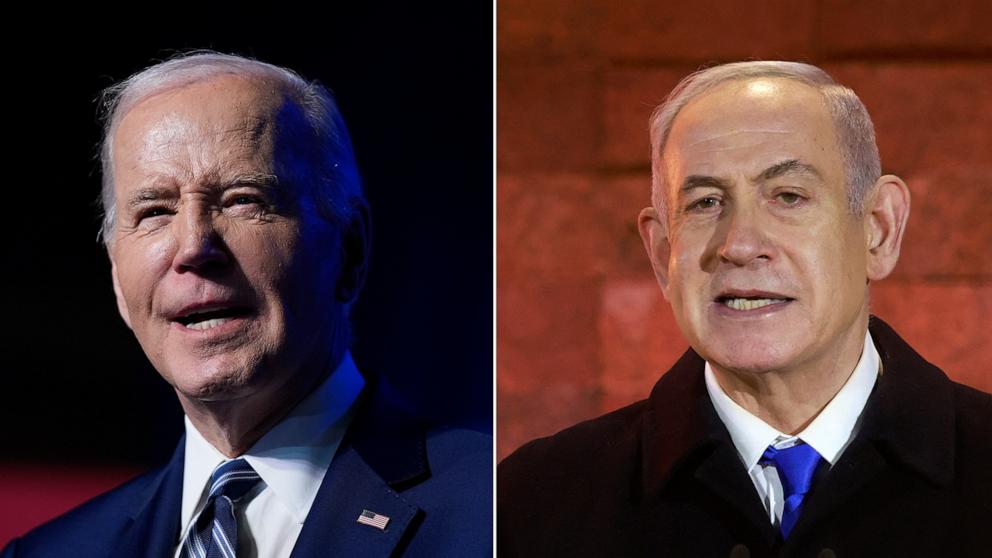


President Joe Biden spoke with Israeli Prime Minister Benjamin Netanyahu on Monday and "reiterated his clear position on Rafah," according to the White House.
The call lasted approximately 30 minutes and was "constructive," National Security Council spokesman John Kirby told reporters.
The two leaders spoke as a major Israeli military operation in the southern Gaza city appears imminent, despite opposition from the United States and other nations due to concerns over the humanitarian crisis in the region.
Israel Defense Forces on Monday urged 100,000 people in the southern Gaza city to evacuate and dropped flyers warning of danger. More than 1.4 million Palestinians are thought to be sheltering in Rafah in the wake of Israel's bombardment of the Gaza Strip.
Kirby said Biden in his call with Netanyahu "made clear our views about operations in Rafah that could potentially put more than a million innocent people at greater risk."
The Pentagon said Monday it had not seen a comprehensive plan for protecting civilians if Israel's military were to move into Rafah -- something U.S. officials have repeatedly called for.
Still, Netanyahu has pledged to go into Rafah in order to root out the Hamas terrorist group.
"We will destroy the Hamas battalions there, we will complete all the objectives of the war, including the repatriation of all our hostages," Netanyahu said last week.
Israeli Defense Minister Yoav Gallant also told Defense Secretary Lloyd Austin on Sunday that Israel believed it had "no choice" but to forge ahead with an offensive in Rafah.
Strikes have intensified in Rafah and surrounding areas in recent days.
At least four Israeli soldiers were killed and 10 others were injured in a rocket attack on the Kerem Shalom border crossing on Sunday that was orchestrated by Hamas, the IDF said.
In response, Israel closed the crossing, one critical to delivering humanitarian assistance to Palestinian civilians. But according to the White House, Netanyahu agreed to reopen the crossing for aid into northern Gaza during his call with Biden.
At least 12 Palestinians were killed in IDF strikes on Rafah on Sunday, according to the Hamas-run Gaza Health Ministry. Israel's military said it continued strikes on Monday on "terror targets" and military structures. Those "targeted" operations will continue on Tuesday, the IDF said.
Also during Monday's call, Biden and Netanyahu discussed efforts to secure a hostage deal and temporary cease-fire with ongoing talks in Doha, Qatar.
Hours after their conversation, Hamas announced it had accepted a cease-fire proposal, though few specifics were provided. The U.S. said it could confirm Hamas had issued a response to a recent cease-fire proposal, but is still trying to figure out the details of the apparent deal.
The White House largely declined to weigh in on the proposal as Israel worked on its response.
The prime minister's office said in a statement the war cabinet "unanimously decided that Israel continues the operation in Rafah" but would send a delegation to "to exhaust the possibility of reaching an agreement under conditions acceptable to Israel."
ABC News' Alexandra Hutzler and Joseph Simonetti contributed to this report.